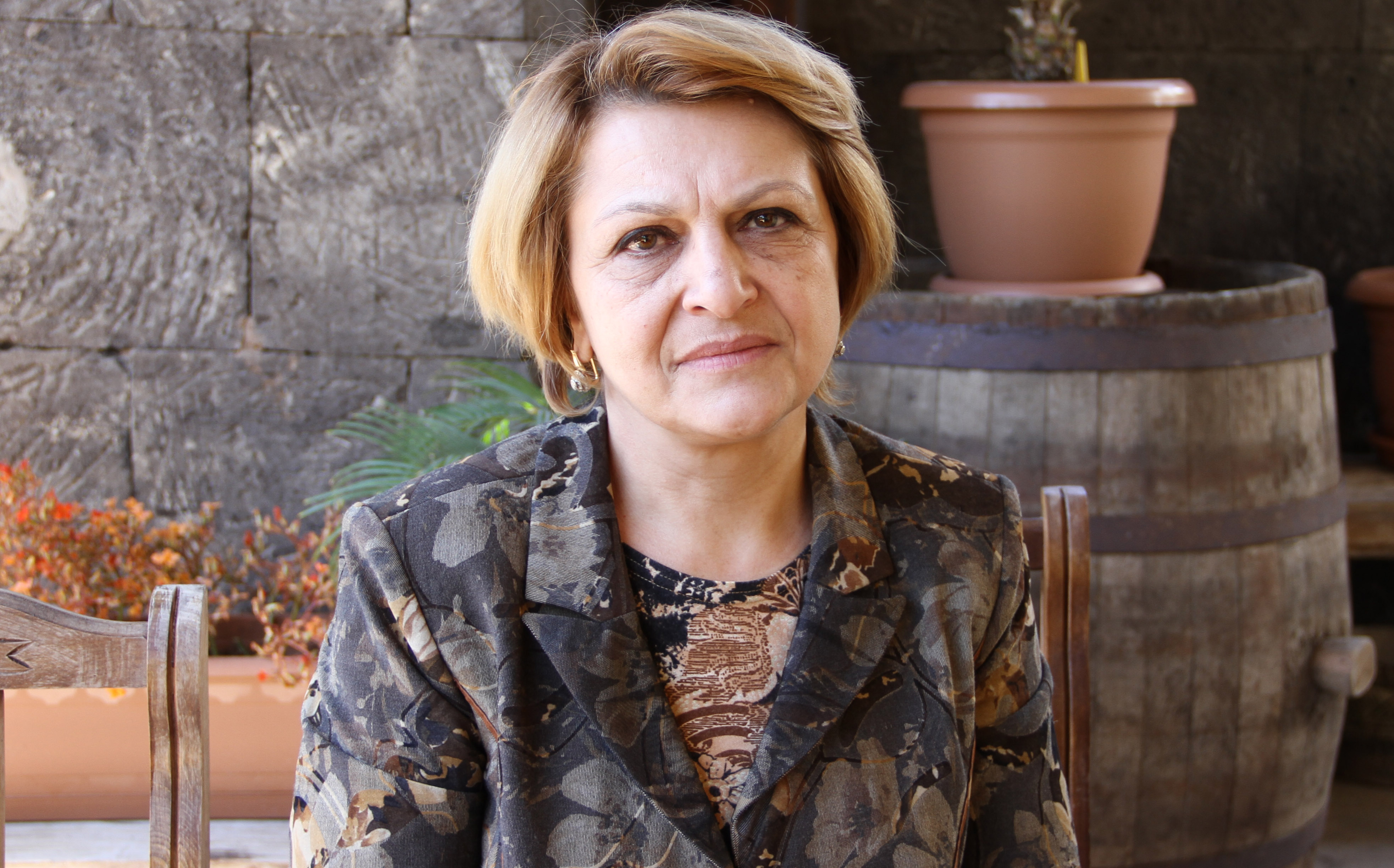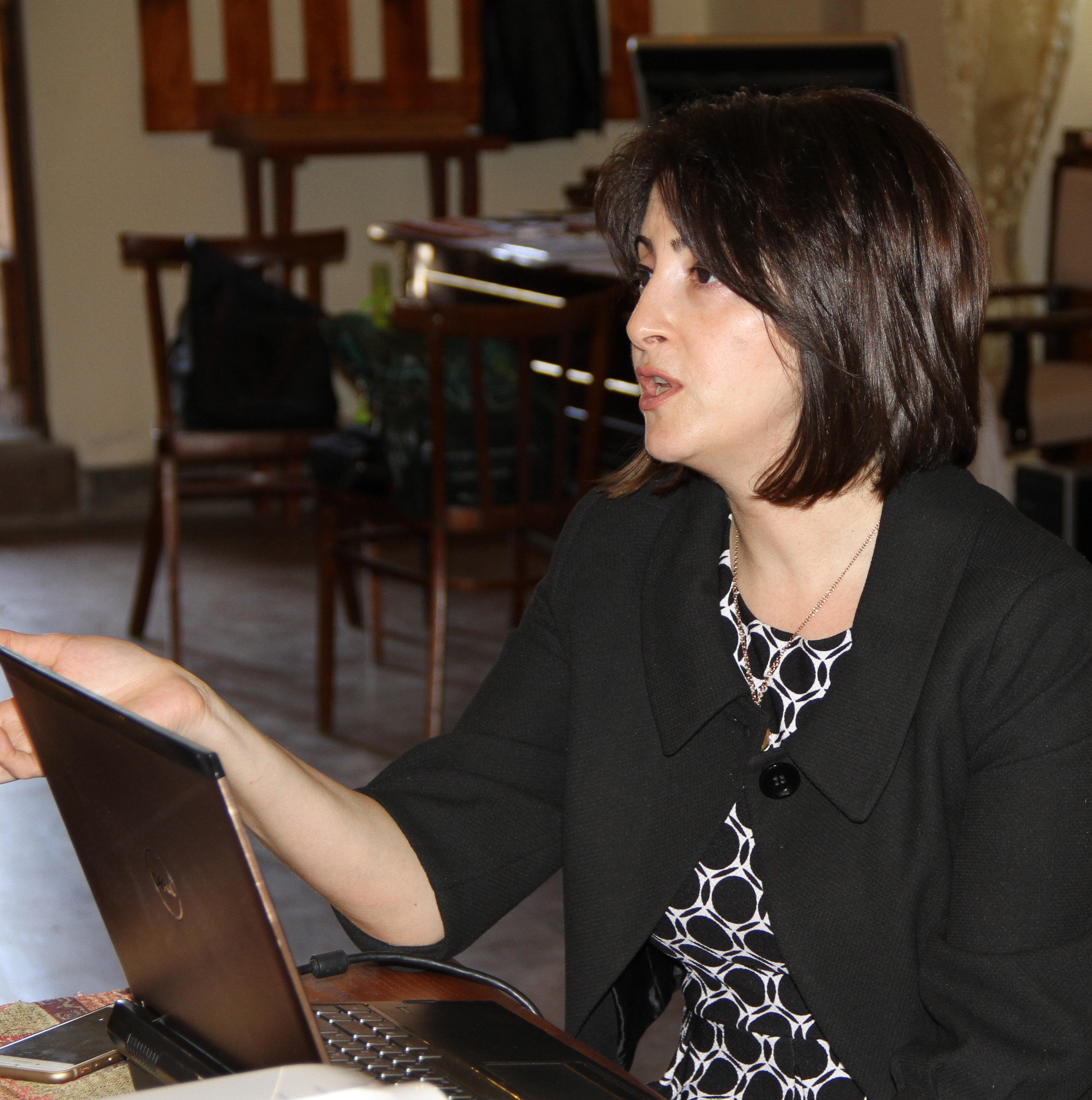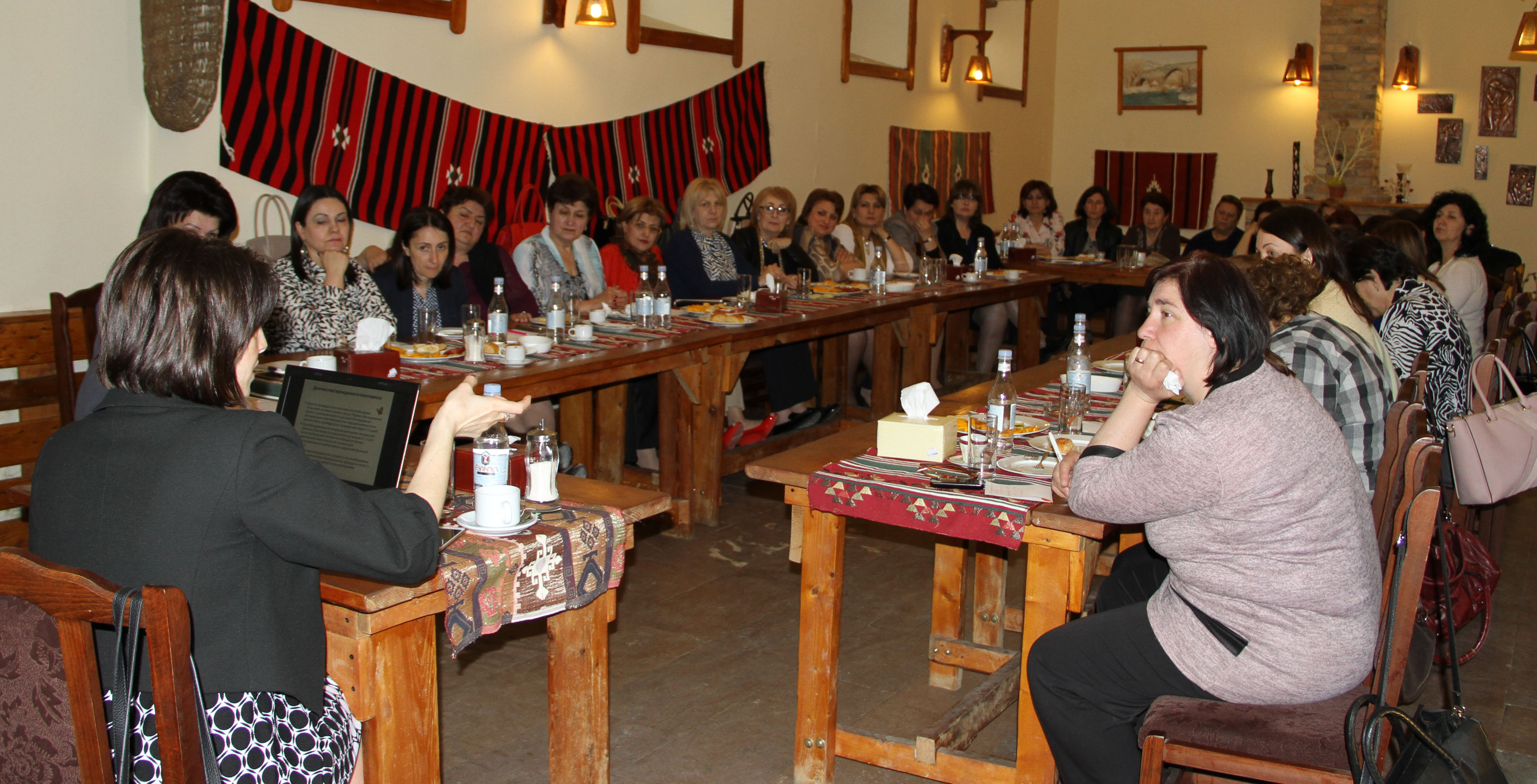Quality medical care for each and every child; World Vision continues investing in ongoing training for community doctors
The quality of primary healthcare services for a child in capital Yerevan and a child in a remote community in Armenia is not always the same; misdiagnose is not uncommon, while family doctors providing primary healthcare services in communities not always have the opportunity to learn the novelties in medicine to be able to diagnose and prescribe treatment according to contemporary standards and methods.
Karine Kuroyan, a family doctor and pediatrician from one of the communities of Talin Area, Aragatsotn Marz of Armenia, is always happy to participate in refresher courses because she believes doctors need to stay up-to-date all the time. “Medicine is developing every day, and we need to keep learning all the time,” says Karine.
Unfortunately, for doctors living outside of capital Yerevan it is always a big challenge to travel to capital to participate in new classes. However it is also a state-imposed obligation for every practicing medical worker to participate to refresher classes and gain credits; according to Armenian Government’s Continuing Medical Education Programme doctors need to gain 220 credits within five years to be eligible for continuing their medical practices. There are certain accredited educational facilities that provide relevant training to doctors, but these training sessions are paid and mostly provided in the capital Yerevan city.
With approval from the Ministry of Healthcare it is already four years World Vision is bringing classes to the community doctors easing them from the burden to pay for the accommodation, travel and training costs and leaving entire communities without primary healthcare services during their participation period.
Prior to organising training courses World Vision holds discussions with community family doctors to understand their preferences but most importantly to reveal those common urgent areas where they need refresher courses. Then World Vision discusses the topics with the Ministry of Health to understand the broader context and identify the best possible trainer for each area and topic. “This helps us provide targeted practical need-based course so that every participant takes away very handy knowledge to apply in her/his everyday practice,” says Karine Abelyan, World Vision Armenia’s Early Childhood Development Programmes Manager.
“The need for refresher courses is obvious; we particularly witness a significant issue in misdiagnosing. I know cases when a child with obvious symptoms of diabetes is being treated in a number of ‘ordinary’ diseases, but the community family doctor is not competent enough to diagnose diabetes and treat accordingly. This is due to lack of experience in the area,” says Elena Aghajanova - a leading endocrinologist in one of the biggest children’s hospital in Yerevan and head of the Endocrinological Department of Yerevan State Medical University.
The trainers also spend significant time to examine young patients in the regional medical units instructing their trainees on further treatment.
Only during the first half of 2018 306 family doctors/pediatricians from 200 communities of six marzes (regions) of Armenia successfully completed refresher courses on Diabetes in children, thyroid diseases, child growth and development disorders, sexual maturation disorders and children's ophthalmological problems. During the past four years more than 400 doctors were trained on numerous topics, including child oncological diseases, neurological, urinary tract and kidney diseases, gastroenterological, pulmonary diseases, joint and bone diseases.
“These training help World Vision bring quality primary healthcare to more than 250 000 children living outside of Yerevan”, says Karine Abelyan.
“With every new course we see how the interest of local family doctors increases. They all are general practitioners, and they have numerous questions to ask and find answers. We not only try to educate them on novelties in each area, but also give enough time for practical questions and discussions,” says Ruzanna Manukyan who is coordinating the organization of these courses in Aragatsotn marz of Armenia. “And most importantly we make sure they exchange contacts with the trainers to be able to discuss certain issues in future”, says Ruzanna.


